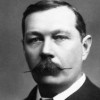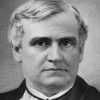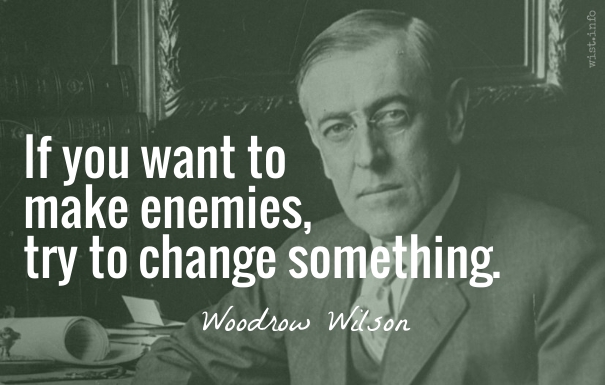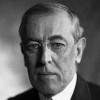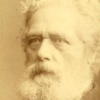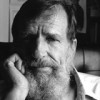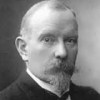Be temperate in wine, in eating, girls, and sloth;
Or the Gout will seize you and plague you both.Benjamin Franklin (1706-1790) American statesman, scientist, philosopher, aphorist
Poor Richard (1734 ed.)
(Source)
Quotations about:
sloth
Note not all quotations have been tagged, so Search may find additional quotes on this topic.
Why is it that we remember with effort but forget without effort? That we learn with effort but stay ignorant without effort? That we are active with effort, and lazy without effort?
[Quid est enim, quod cum labore meminimus, sine labore obliuiscimur; cum labore discimus, sine labore nescimus; cum labore strenui, sine labore inertes sumus?]Augustine of Hippo (354-430) Christian church father, philosopher, saint [b. Aurelius Augustinus]
City of God [De Civitate Dei], Book 22, ch. 22 (22.22) (AD 412-416) [tr. Green (Loeb) (1972)]
(Source)
(Source (Latin)). Alternate translations:
What is our labour to remember things, our labour to learn, and our ignorance without this labour? our agility got by toil, and our dullness if we neglect it?
[tr. Healey (1610)]
For why is it that we remember with difficulty, and without difficulty forget? learn with difficulty, and without difficulty remain ignorant? are diligent with difficulty, and without difficulty are indolent?
[tr. Dods (1871)]
How difficult it is to remember, how easy to forget; how hard to learn and how easy to be ignorant; how difficult to make an effort and how easy to be lazy.
[tr. Walsh/Honan (1954)]
How is it that what we learn with toil we forget with ease? that it is hard to learn, but easy to be in ignorance? That activity goes against the grain, while indolence is second nature?
[tr. Bettenson (1972)]
Why is it that we remember with such difficulty, but forget so easily? Why is it that we learn with such difficulty, yet so easily remain ignorant? Why is it that we are vigorous with such difficulty, yet so easily inert?
[tr. Dyson (1998)]
When on all sides you showed me that your words were true, and I was overcome by your truth, I had no answer whatsoever to make, but only those slow and drowsy words, “Right away. Yes, right away.” “Let me be for a little while.” But “Right away — right away” was never right now, and “Let me be for a little while” stretched out for a long time.
[Undique ostendenti vera te dicere, non erat omnino quid responderem veritate convictus, nisi tantum verba lenta et somnolenta: “modo,” “ecce modo,” “sine paululum.” Sed “modo et modo” non habebat modum et “sine paululum” in longum ibat.]
Augustine of Hippo (354-430) Christian church father, philosopher, saint [b. Aurelius Augustinus]
Confessions, Book 8, ch. 5 / ¶ 12 (8.5.12) (c. AD 398) [tr. Ryan (1960)]
(Source)
Augustine writing of his reluctance to convert to Christianity. Sometimes paraphrased "By and by never comes."
(Source (Latin)). Alternate translations:
And when Thou didst on all sides show me that what Thou saidst was true, I, convicted by the truth, had nothing at all to answer, but only those dull and drowsy words, "Anon, anon," "presently," "leave me but a little." But "presently, presently," had no present, and my "little while" went on for a long while.
[tr. Pusey (1838)]
And to Thee showing me on every side, that what Thou saidst was true, I, convicted by the truth, had nothing at all to reply, but the drawling and drowsy words: “Presently, lo, presently;” “Leave me a little while.” But “presently, presently,” had no present; and my “leave me a little while” went on for a long while.
[tr. Pilkington (1876)]
And to Thee, on all sides showing me that what Thou saidst was true, I, convicted by the truth, had nothing to say in reply, but only drawling and drowsy words, “Presently; yes, presently;” “Wait a little while." But “presently and presently" had no present; and “wait a little while” went on to a long while.
[tr. Hutchings (1890)]
On all sides Thou didst show me that Thy words are true, and the truth confounded me, so that I could make no reply but slow and drowsy words: "Presently, O presently; let me be a little while.” But my "presently, presently," had no present, and the little while proved a long while.
[tr. Bigg (1897), 8.5.3]
Whereas You showed me by every evidence that Your words were true, there was simply nothing I could answer save only laggard lazy words: “Soon,” “Quite soon,” “Give me just a little while.” But “soon” and “quite soon” did not mean any particular time; and “just a little while” went on for a long while.
[tr. Sheed (1943)]
On all sides, thou didst show me that thy words are true, and I, convicted by the truth, had nothing at all to reply but the drawling and drowsy words: “Presently; see, presently. Leave me alone a little while.” But “presently, presently,” had no present; and my “leave me alone a little while” went on for a long while.
[tr. Outler (1955)]
You used all means to prove the truth of your words, and now that I was convinced that they were true, the only answers I could give were the drowsy words of an idler -- "Soon," "Presently," "Let me wait a little longer." But "soon" was not soon and "a little longer" grew much longer.
[tr. Pine-Coffin (1961)]
And, while you showed me wherever I looked that what you said was true, I, convinced by the truth, could still find nothing at all to say except lazy words spoken half asleep: "A minute," "just a minute," "just a little time longer." But there was no limit to the minutes, and the little time longer went a long way.
[tr. Warner (1963)]
Though you showed me on every side that what you said was true, though convinced of that truth, I had nothing at all to answer other than some dull and drowsy words: "Soon," "Coming soon," "Leave me just a little." But my "little while" stretched on and on.
[tr. Blaiklock (1983)]
You plied me with evidence that you spoke truly; no, I was convinced by the truth and had no answer except the sluggish, drowsy words, "Just a minute," "One more minute," "Let me have a little longer." But these "minutes" never diminished, and my "little longer" lasted inordinately long.
[tr. Boulding (1997)]
“Here is where you can’t afford to be lazy,”
My Master said. “Lying in feather beds,
Or under quilts, no one conquers fame,
Without which, once your earthly life is dead,
The only traces you leave behind you are smoke
Blown in the air or bubbles breaking in water.[“Omai convien che tu così ti spoltre”,
disse ’l maestro; “ché, seggendo in piuma,
in fama non si vien, né sotto coltre;
sanza la qual chi sua vita consuma,
cotal vestigio in terra di sé lascia,
qual fummo in aere e in acqua la schiuma.”]Dante Alighieri (1265-1321) Italian poet
The Divine Comedy [Divina Commedia], Book 1 “Inferno,” Canto 24, l. 46ff (24.46-51) [Virgil] (1309) [tr. Raffel (2010)]
(Source)
The analogy of life to smoke and foam have been noted by commentators as resembling similar metaphors in Wisdom 2:1-4 and 5:14 and the Aeneid 5.740.
Virgil's urging of Dante to continue on out of a desire for fame, rather than to learn how to be saved or to come closer to God, have only recently been interpreted as an intentional showing that the poet/guide is not perfect -- another reason, beyond being only a virtuous pagan, that he cannot complete the journey with Dante to Paradise. (See here for more commentary on this.)
(Source (Italian)). Alternate translations:
It now is proper, said my Lord, that you
Should from this bed of yours arise; for they
Ne'er Fame acquire who spend their lives in down:
He who, without pursuing her, consumes
His time, leaves himself such tracts behind,
As Froth in Water, or as Smoke in Air.
[tr. Rogers (1782), ll. 44-49]
Arise! -- In vain the slumb'ring soul aspires,
(Her powers betray'd by sloth, extinct her fires)
In vain she tries the dazzling heights of fame:
As morning fogs disperse to meet no more,
As the waves close behind the lab'ring oar,
The dastard soul expires without a name!
[tr. Boyd (1802), st. 9]
“Now needs thy best of man;” so spake my guide:
“For not on downy plumes, nor under shade
Of canopy reposing, fame is won,
Without which whosoe’er consumes his days
Leaveth such vestige of himself on earth,
As smoke in air or foam upon the wave."
[tr. Cary (1814)]
"Rouse thee," my master urged, "'tis time to throw
This lethargy aside; who dozing lies
'Tween coverlet and feathers, ne'er shall know
Renown, and without her who wastes and dies,
Leaves of himself like trace on earth behind,
As foam on wave, or vapour on the skies."
[tr. Dayman (1843)]
"Now it behooves thee thus to free thyself from sloth," said the Master: "for sitting on down, or under coverlet, man come not into fame;
without which whoso consumes his his life, leaves such vestige of himself on earth, as smoke in air or foam in water."
[tr. Carlyle (1849)]
"Henceforth you must abandon indolence,"
My master said: "'tis not repose on plumes
That leads to fame -- nor yet in shady glooms;
Without the which if one consumes his life,
E'en such a vestige upon the earth he'll make
As smoke in air, or foam on water's track."
[tr. Bannerman (1850)]
"Now it befits thee to shake off this sloth,"
The Master said, "for resting upon down,
And under quilts is not the way to fame;
And without this he who his life consumes,
Leaves of himself on earth no better trace,
Than smoke in air or on the water foam."
[tr. Johnston (1867)]
"Now it behoves thee thus to put off sloth,"
My Master said; "for sitting upon down,
Or under quilt, one cometh not to fame,
Without which whoso his life consumes
Such vestige leaveth of himself on earth,
As smoke in air or in the water foam."
[tr. Longfellow (1867)]
"Henceforward it behoves that thou brace thyself thus," said the Master; "for not by sitting on feathers does one come into fame, nor under quilts; without the which whoso consumes his life leaves such trace on earth of himself as smoke in air or its froth on water."
[tr. Butler (1885)]
"Henceforth 'tis fitting thou shouldst shake off sloth,"
The master cried, "since idly lapt in down
'Neath coverlets, for him Fame never groweth.
Who so his life consumes without renown.
Leaves such a vestige of himself on earth,
As it were froth on air or water blown."
[tr. Minchin (1885)]
“Now it behoves thee thus to put off sloth,” said the Master, “for, sitting upon down or under quilt, one attains not fame, without which he who consumes his life leaves of himself such trace on earth as smoke in air, or in water the foam."
[tr. Norton (1892)]
"'Tis thus that thou must now shake thyself free from sloth," my Master said, "for seated on down, or under coverlet, man cometh not to fame; unattended by which whoso doth spend his days, leaveth such traces of himself on earth, as smoke in air or foam on water."
[tr. Sullivan (1893)]
"Thus must thou ever shake off sloth henceforward;"
The Master said, " for sitting upon feathers
Man cometh not to fame, nor under quilting;
Which lacking, whosoe'er consumes his life-time
Leaves of himself on earth just such a vestige
As smoke doth leave in air, and foam in water."
[tr. Griffith (1908)]
"Now must thou thus cast off all sloth," said the Master "for sitting on down or under blankets none comes to fame, and without it he that consumes his life leaves such trace of himself on earth as smoke in air or foam on water."
[tr. Sinclair (1939)]
"Now it behoveth lassitude to leave,"
The Master said, "for softly on down reclined
Or under coverlet, none can fame achieve,
Without which he who dallieth leaves behind
Such vestige of himself on earth imprest
As foam in water or smoke upon the wind."
[tr. Binyon (1943)]
"Put off this sloth," the master said, "for shame!
Sitting on feather-pillows, lying reclined
Beneath the blanket is no way to fame --
Fame, without which man's life wastes out of mind,
Leaving on earth no more memorial
Than foam in water or smoke upon the wind."
[tr. Sayers (1949)]
"Up on your feet! This is no time to tire!"
my Master cried. "The man who lies asleep
will never waken fame, and his desire
and all his life drift past him like a dream,
and the traces of his memory fade from time
like smoke in the air, or ripples on a stream."
[tr. Ciardi (1954)]
“Now it behooves you thus to cast off sloth,” said my master, “for sitting on down or under coverlet, no one comes to fame, without which whoso consumes his life leaves such vestige of himself on earth as smoke in air or foam on water."
[tr. Singleton (1970)]
"Come on, shake off the covers of this sloth,"
the master said, "for sitting softly cushioned,
or tucked in bed, is no way to win fame;
and without it man must waste his life away,
leaving such traces of what he was on earth
as smoke in wind and foam upon the water."
[tr. Musa (1971)]
“Now you must cast aside your laziness,”
my master said, “for he who rests on down
or under covers cannot come to fame;
and he who spends his life without renown
leaves such a vestige of himself on earth
as smoke bequeaths to air or foam to water."
[tr. Mandelbaum (1980)]
"Now is the time for you to rouse yourself,"
The master said; "for sitting on a cushion
Is not the way to fame, nor staying in bed;
And without fame, a man must spend his life
Only to leave such traces upon earth
As smoke leaves in the air, or foam in the water."
[tr. Sisson (1981)]
"To cast off sloth
Now well behooves you," said my master then:
"For resting on soft down, or underneath
The blanket's cloth, is not how fame is won --
Without which, one spends life to leave behind
As vestige of himself on earth the sign
Smoke leaves on air, or foam on water."
[tr. Pinsky (1994), l. 46ff]
“From now on you will have to cast off sloth in this way,” said my master, “for one does not gain fame sitting on down cushions, or while under coverlets;
and whoever consumes his life without fame leaves a mark of himself on earth like smoke in the air or foam in water."
[tr. Durling (1996)]
Now, you must free yourself from sloth: men do not achieve fame, sitting on down, or under coverlets; fame, without which whoever consumes his life leaves only such trace of himself, on earth, as smoke does in the air, or foam on water.
[tr. Kline (2002)]
"Now you must needs," my teacher said, "shake off
your wonted indolence. No fame is won
beneath the quilt or sunk in feather cushions.
Whoever, fameless, wastes his life away,
leaves of himself no greater mark on earth
than smoke in air or froth upon the wave."
[tr. Kirkpatrick (2006)]
'Now must you cast off sloth,' my master said.
'Sitting on feather cushions or stretched out
under comforters, no one comes to fame.
Without fame, he who spends his time on earth
leaves only such a mark upon the world
as smoke does on the air or foam on water.'
[tr. Hollander/Hollander (2007)]
“Now you must,”
My Guide said, “quell the slothful urge to rest.
A swansdown seat and a soft blanket just
Keep you from fame, without which no one who
Consumes his life leaves more trace in the world
Than smoke in air and foam on water do."
[tr. James (2013)]
Self-indulgence and sensual delight are born with man and die only at his death; neither the joys nor the sorrows of life can deprive him of them; he finds therein the reward of success, or a consolation for misfortune.
[La mollesse et la volupté naissent avec l’homme, et ne finissent qu’avec lui; ni les heureux ni les tristes événements ne l’en peuvent séparer; c’est pour lui ou le fruit de la bonne fortune, ou un dédommagement de la mauvaise.]
Jean de La Bruyère (1645-1696) French essayist, moralist
The Characters [Les Caractères], ch. 11 “Of Mankind [De l’Homme],” § 110 (11.110) (1688) [tr. Stewart (1970)]
(Source)
(Source (French)). Alternate translations:
Softness and voluptuousness are innate, they are born with men and die with them, happy, or unhappy accidents never cure 'em, good and bad fortune equally produce them.
[Bullord ed. (1696)]
Luxury and Voluptuousness are innate, born with Man and die with them, happy or unhappy Accidents never part him from them; the fruits he enjoys of a good Fortune and the amends of a bad one.
[Curll ed. (1713)]
Softness and Voluptuousness are innate to Men, and stick by them till they die; it is beyond the Power of happy, or unhappy Accidents to detach them: they are the Emanations of Prosperity or used as Solaces in Adversity.
[Browne ed. (1752)]
Want of vigour and voluptuousness are innate in man and cease with him, and fortunate or unfortunate circumstances never make him abandon them; they are the fruits of prosperity or become a solace in adversity.
[tr. Van Laun (1885)]
For what is there more hideous than avarice, more brutal than lust, more contemptible than cowardice, more base than stupidity and folly? Well, then, are we to call those persons unhappy, who are conspicuous for one or more of these, on account of some injuries, or disgraces, or sufferings to which they are exposed, or on account of the moral baseness of their sins?
[Quid enim foedius auaritia, quid immanius libidine, quid contemptius timiditate, quid abiectius tarditate et stultitia dici potest? Quid ergo? Eos qui singulis uitiis excellunt aut etiam pluribus, propter damna aut detrimenta aut cruciatus aliquos miseros esse dicimus, an propter uim turpitudinemque uitiorum?]
Marcus Tullius Cicero (106-43 BC) Roman orator, statesman, philosopher
De Legibus [On the Laws], Book 1, ch. 19 / sec. 51 (1.19/1.51) [Marcus] (c. 51 BC) [tr. Barham/Yonge (1878)]
(Source)
(Source (Latin)). Alternate translations:
For what is there more hideous than avarice, more ferocious than lust, more contemptible than cowardice, more base than stupidity and folly? Well, therefore, may we style unhappy, those persons in whom any one of these vices is conspicuous, not on account of the disgraces or losses to which they are exposed, but on account of the moral baseness of their sins.
[tr. Barham (1842)]
For what can be thought of that is more loathsome than greed, what more inhuman than lust, what more contemptible than cowardice, what more degraded than stupidity and folly? Well, then, shall we say that those who are sunk deepest in a single vice, or in several, are wretched on account of any penalties or losses or tortures which they incur, or on account of the base nature of the vices themselves?
[tr. Keyes (1928)]
What can be called more revolting than greed, more bestial than lust, more despicable than cowardice, more abject than dullness and stupidity? What then? Take those people who are conspicuous for one (or more than one) vice. Do we call them wretched because of the losses or damages or pain they suffer, or because of the power and ugliness of their vices?
[tr. Rudd (1998)]
What is uglier than greed, what is more horrible than lust, what is more contemptible than cowardice, what is lower than sloth and stupidity? What then? People who are remarkable for single vices or even for several -- do we call them wretched because of material losses or torture, or because of the great dishonor from the vices themselves?
[tr. Zetzel (1999)]
What could be called fouler than avarice, what more monstrous than lust, what more scorned than cowardice, what more despicable than dullness and foolishness? What then? Do we say about those who are conspicuous for their individual vices, or even many vices, that they are wretched because of losses or damages or tortures, or because of the significance and the disgrace of their vices?
[tr. Fott (2013)]
Stuff yourself with food all day, never give your mind anything to do, and you’re a problem! There’s chess, isn’t there? There’s weiqi, isn’t there? — wiser at least to busy yourself with these.
[飽食終日、無所用心、難矣哉、不有博弈者乎、爲之猶賢乎已]
[饱食终日无所用心难矣哉不有博弈者乎为之犹贤乎已]Confucius (c. 551- c. 479 BC) Chinese philosopher, sage, politician [孔夫子 (Kǒng Fūzǐ, K'ung Fu-tzu, K'ung Fu Tse), 孔子 (Kǒngzǐ, Chungni), 孔丘 (Kǒng Qiū, K'ung Ch'iu)]
The Analects [論語, 论语, Lúnyǔ], Book 17, verse 22 (17.22) (6th C. BC – AD 3rd C.) [tr. Watson (2007)]
(Source)
There is varied discussion in footnotes as to the specific identity and nature of the game(s) Confucius references. The phrase bo yi or po yi (博弈) can be translated either as "to play chess" or "the game of bo and the game of yi." The game of bo was similar to weiqi (wei-ch'i) (or, in Japan, go; the game of yi was a game like chess, or a board game played with dice (shuanglu), the rules of which have been forgotten. There are also translators who assert it's the other way around, that bo or liubo is the game of chance, and yi was weiqi (go).
(Source (Chinese) 1, 2). Alternate translations:
Hard is it to deal with him, who will stuff himself with food the whole day, without applying his mind to anything good! Are there not gamesters and chess players? To be one of these would still be better than doing nothing at all.
[tr. Legge (1861)]
Ah, it is difficult to know what to make of those who are all day long cramming themselves with food and are without anything to apply their minds to! Are there no dice and chess players? Better, perhaps, join in that pursuit than do nothing at all!
[tr. Jennings (1895)]
It is a really bad case when a man simply eats his full meals without applying his mind to anything at all during the whole day. Are there not such things as gambling and games of skill? To do one of those things even is better than to do nothing at all.
[tr. Ku Hung-Ming (1898)]
How hard is the case of the man who stuffs himself with food the livelong day, never applying his mind to anything! Are there no checker or chess players? Even to do that is surely better than nothing at all.
[tr. Soothill (1910)]
Stuffing in food all day, nothing that he puts his mind on, a hard case! Don't chess players at least do something and have solid merit by comparison?
[tr. Pound (1933)]
Those who do nothing all day but cram themselves with food and never use their minds are difficult. Are there not games such as draughts? To play them would surely be better than doing nothing at all.
[tr. Waley (1938)]
I really admire a fellow who goes about the whole day with a well-fed stomach and a vacuous mind. How can one ever do it? I would rather that he play chess, which would seem to me to be better.
[tr. Lin Yutang (1938)]
To eat one’s full all day long without directing the mind to anything is, indeed, to be in difficulties! Even those who spend all their time at intricate games are to be reckoned of higher caliber.
[tr. Ware (1950), 17.20]
It is no easy matter for a man who always has a full stomach to put his mind to some use. Are there not such things as po and yi? Even playing these games is better than being idle.
[tr. Lau (1979)]
It is surely difficult to spend the whole day stuffing oneself with food and having nothing to use one's mind on. Are there not people who play bo and yi? Even such activity is definitely superior, is it not?
[tr. Dawson (1993), 17.20]
I cannot abide these people who fill their bellies all day long, without ever using their minds! Why can't they play chess? At least it would be better than nothing.
[tr. Leys (1997)]
Those who are stated with food all day without applying their minds to anything at all are difficult indeed! Are there no people who play double six and siege? Even doing those would be beter than to stop thinking altogether.
[tr. Huang (1997), 17.21]
Eating all day without thinking about anything, such persons are hard to be trained. Are not there some games? Even if playing some games, it is also better than having nothing to do.
[tr. Cai/Yu (1998), No. 462]
There are troubles ahead for those who spend their whole day filling their stomachs without ever exercising their heart-and-mind (xin). Are there not diversions such as the board games of bo and weiqi? Even playing those games would be better than nothing.
[tr. Ames/Rosemont (1998)]
One who eats his fill all day long, and never uses his mind on anything, is a difficult case. Are there not such things as gammon and chess? Would it not be better to play them?
[tr. Brooks/Brooks (1998), 17.20]
All day eating and never thinking: such people are serious trouble. Aren't there games to play, like go and chess? Even that is better than nothing. [tr. Hinton (1998), 17.21]
Spending the entire day filling himself with food, never once exercising his mind -- someone like this is a hard case indeed! Do we not have the games Bo and Yi? Even playing these games would be better than doing nothing.
[tr. Slingerland (2003)]
To spend the whole day stuffing yourself and not to put your mind to use at all -- this is hopeless behavior. Are there not such games as bo and yi? It would be better to play these games [than to do nothing at all].
[tr. Annping Chin (2014)]
If a person is well fed the whole day and does not use his brain on anything, it will be difficult for him to be of value in life. Are there poker games and chess? Playing these games is still more beneficial than doing nothing.
[tr. Li (2020)]
In short, the contradiction in the old defense of class stratification is that it defends leisure for the leisure class, but not for the underclass. With reference to the underclass, leisure is said to destroy the incentive to work, leads to slothfulness and self-indulgence, and retards cognitive and moral development. When applied to the leisure class, the concept evokes an image of Plato and Aristotle, whose leisure was based on slave labor, creating the intellectual foundations of Western civilization; or patrician slave-owners like Washington and Jefferson laying the foundations of American civilization; or creative aristocrats like Count Leo Tolstoy or Bertrand, Earl Russell; or, even closer to home, of our own sons and daughters (or of ourselves, when we were young adults) being freed from the stultifying tasks of earning a living until well into our adult years so that we could study in expensive universities to gain specialized knowledge and skills.
James Gilligan (b. c. 1936) American psychiatrist and author
Preventing Violence, ch. 5 (2001)
(Source)
Happiness is thought to imply leisure; for we toil in order that we may have leisure, as we make war in order that we may enjoy peace.
[δοκεῖ τε ἡ εὐδαιμονία ἐν τῇ σχολῇ εἶναι, ἀσχολούμεθα γὰρ ἵνα σχολάζωμεν καὶ πολεμοῦμεν ἵν᾽ εἰρήνην ἄγωμεν.]
Aristotle (384-322 BC) Greek philosopher
Nicomachean Ethics [Ἠθικὰ Νικομάχεια], Book 10, ch. 7 (10.7) / 1177b.4 (c. 325 BC) [tr. Peters (1893), 10.7.6]
(Source)
(Source (Greek)). Alternate translations:
Happiness is thought to stand in perfect rest; for we toil that we may rest, and war that we may be at peace.
[tr. Chase (1847), ch. 6]
It would seem that happiness is the very antithesis of a busy life, in that it is compatible with perfect leisures. And it is with such leisure in view that a busy life is always led, exactly as war is only waged for the sake of ultimate peace.
[tr. Williams (1869)]
The end of labor is to gain leisure.
[in Ballou, Treasury of Thought (1872)]
Happiness is thought to depend on leisure; for we are busy that we may have leisure, and make war that we may live in peace.
[tr. Ross (1908)]
Happiness is thought to involve leisure; for we do business in order that we may have leisure, and carry on war in order that we may have peace.
[tr. Rackham (1934)]
Happiness seems to reside in leisure, since we do unleisured things in order to be at leisure, and wage war in order to live in peace.
[tr. Reeve (1948)]
Happiness is thought to depend on leisure; for we toil for the sake of leisurely activity, and we are at war for the sake of peaceful activity.
[tr. Apostle (1975)]
Happiness seems to depend on leisure, because we work to have leisure, and wage war to live in peace.
[tr. Crisp (2000)]
[Because], happiness seems to reside in leisure, we labor [sacrifice leisure] so that we may have leisure.
[tr. @sentantiq (2018)]
Thou morning client, this is my retreat:
Go to the town and palace of the great.
No lawyer I, nor can your cause defend;
But old, and idle, and the muse’s friend.
Ease and repose I love, but if in vain
I seek them here; why not to town again?[Matutine cliens, urbis mihi causa relictae,
Atria, si sapias, ambitiosa colas.
Non sum ego causidicus, nec amaris litibus aptus,
Sed piger et senior Pieridumque comes;
tia me somnusque iuvant, quae magna negavit
Roma mihi: redeo, si vigilatur et hic.]Martial (AD c.39-c.103) Spanish Roman poet, satirist, epigrammatist [Marcus Valerius Martialis]
Epigrams [Epigrammata], Book 12, epigram 68 (12.68) (AD 101) [tr. Hay (1755)]
(Source)
(Source (Latin)). Alternate translations:
Whoe'er in town dist morning-homage pay,
And wast one cause, why thence I win'd my way;
Hunt now ambition's hants, let me advise;
And learn, at least in this, learn to be wise.
I am no brangler, nor can hairs untwine:
My growing age asks ease, yet woos the Nine.
Scenes are my joy, for which at Rome I sigh'd:
But thither I return, if here deni'd.
[tr. Elphinston (1782), Book 2, ep. 136]
O clients, that beset me in the morning, and who were the cause of my departure from Rome, frequent, if you are wise, the lordly mansions of the city. I am no lawyer, nor fitted for pleading troublesome causes, but inactive, somewhat advanced in years, and a votary of the Pierian sisters. I wish to enjoy repose and slumber, which great Rome denied; but I must return thither, if I am to be equally hunted here.
[tr. Bohn's Classical (1859)]
Morning client, the cause of my leaving Rome, you would court, were you wise, the halls of greatness. No pleader am I, nor fitted for bitter lawsuits, but an indolent man and one growing old, and the comrade of the Muses. Ease and sleep attract me, and great Rome denied me these; I return if I am sleepless even here.
[tr. Ker (1919)]
I fled from Rome and early calls,
So, Spanish friends, I pray you,
Be wise and seek the lordly halls
Of those who can repay you.
I hate the courts, and legal strife
My lazy mind refuses,
For I am getting on in life
And love to serve the Muses;
Unbroken sleep I love; the stir
And din of Rome destroy it;
But I am going back to her
If here I can't enjoy it.
[tr. Pott & Wright (1921)]
Poor morning client (you remind me
Of all I loathed and left behind me
in Rome), if you had any nous
Instead of calling on my house
You'd haunt the mansions of the great.
I'm not some wealthy advocate
Blessed with a sharp, litigious tongue,
I'm just a lazy, far from young
Friend of the Muses who likes ease
And sleep. Great Rome denied me these:
If I can't find them even in Spain,
I may as well go back again.
[tr. Michie (1972)]
Morning client, reason why I left Rome, if you were sensible, you wuiold dance attendance on pretentious halls. I am no advocate nor apt for bitter lawsuits, but lazy and elderly and a companion of the Pierian maids. I am fond of leisure and sleep, which great Rome denied me. If I'm kept awake here too, I go back.
[tr. Shackleton Bailey (1993)]
You want a patron, and you pester me --
Exactly what made me the City flee.
You're not at some ambitious lawyer's door.
A poet now retired, I'd rather snore.
If Rome you are inflicting on me here,
Then backward to the real one I must steer.
[tr. Wills (2007)]
You early-morning client -- you're the reason I left Rome. If you had sense, you'd hang around the lobbies of people who care about appearances. I'm no barrister, I've no head for bitter litigation: I'm sleepy, I'm getting old, I hang out with the Muses; what I like is free time and sleep, the very things that mighty Rome wouldn't let me have. If there are early mornings even here, I'm going back.
[tr. Nisbet (2015)]
Morning appointment -- my reason for leaving the city --
If you knew better, you would visit more ambitious homes.
I am no lawyer, no man prepared for harsh suits,
I am a lazy and aging friend of the Muses.
Sleep and leisure make me happy -- the very things
Which Rome denied me. But I’ll go back if I can’t sleep here.
[tr. @sentantiq (2018)]
It was true that I didn’t have much ambition, but there ought to be a place for people without ambition, I mean a better place than the one usually reserved. How in the hell could a man enjoy being awakened at 6:30 a.m. by an alarm clock, leap out of bed, dress, force-feed, shit, piss, brush teeth and hair, and fight traffic to get to a place where essentially you made lots of money for somebody else and were asked to be grateful for the opportunity to do so?
There is in the soul of every man, something naturally soft, low, enervated in a manner, and languid. Were there nothing besides this, men would be the greatest of monsters; but there is present to every man reason, which presides over, and gives laws to all; which, by improving itself, and making continual advances, becomes perfect virtue.
[Est in animis omnium fere natura molle quiddam, demissum, humile, enervatum quodam modo et languidum. Si nihil esset aliud, nihil esset homine deformius. sed praesto est domina omnium et regina ratio, quae conixa per se et progressa longius fit perfecta virtus.]
Marcus Tullius Cicero (106-43 BC) Roman orator, statesman, philosopher
Tusculan Disputations [Tusculanae Disputationes], Book 2, ch. 21 (2.21) / sec. 47 (45 BC) [tr. Yonge (1853)]
(Source)
(Source (Latin)). Alternate translations:
There is in the Souls of all men, in a manner, naturally somewhat lasche, mean, low-spirited, in a sort emasculate and feeble; were there nothing else, man would be the most deformed thing in the World; but Reason the Lady and Empress of all things, is at hand to help; which bearing up on her own strength, and advancing farther, becometh, at length, accomplish'd Vertue
[tr. Wase (1643)]
Every soul of man has naturally something soft, low, enervated in a manner, and languid. Were there nothing besides this, men would be the greatest of monsters; but there is present to every man reason, which presides and gives law to all, which by improving itself, and making continual advances, becomes perfect virtue.
[tr. Main (1824)]
There is, in the minds of nearly all men, by nature, something soft, abject, low, enervated somehow, and languid, doting. If this were all, nothing were more disgusting than man. But there is also the mistress and queen of all things, reason, who, supported by herself, and after long progress, becomes perfect virtue.
[tr. Otis (1839)]
There is naturally in the soul of almost every man something soft, low, earthy, in a certain degree nerveless and feeble. But reason is at hand, mistress and queen of all, which by its own force striving and advancing upward, becomes perfect virtue.
[tr. Peabody (1886)]
There is in practically everybody's souls by nature something soft, lowly, abject, nerveless so to speak, and feeble. If there were nothing else, a human being would be the ugliest thing that exists. But at hand is the mistress and queen of all, Reason, which through its own strivings advances forward and becomes perfected virtue.
[tr. Douglas (1990)]
Nature has seen to it that there is in the souls of virtually all people an element of softness, of lowliness, of the abject, of, as it were, what is nerveless and feeble. If he possessed nothing beyond this, man would be the most hideous of all creatures; but at his side stands reason, the mistress and queen of all, who through striving by her own strength and forging onward becomes perfected virtue.
[tr. Davie (2017)]
Got up late and would have liked to have got up later, which is a sad moral state to be in.
Arthur Conan Doyle (1859-1930) British writer and physician
Journal of Arctic voyage (11 Jul 1880)
(Source)
On the other hand, we denounce with righteous indignation and dislike men who are so beguiled and demoralized by the charms of pleasure of the moment, so blinded by desire, that they cannot foresee the pain and trouble that are bound to ensue; and equal blame belongs to those who fail in their duty through weakness of will, which is the same as saying through shrinking from toil and pain. These cases are perfectly simple and easy to distinguish. In a free hour, when our power of choice is untrammeled and when nothing prevents our being able to do what we like best, every pleasure is to be welcomed and every pain avoided. But in certain circumstances and owing to the claims of duty or the obligations of business it will frequently occur that pleasures have to be repudiated and annoyances accepted. The wise man therefore always holds in these matters to this principle of selection: he rejects pleasures to secure other greater pleasures, or else he endures pains to avoid worse pains.
[At vero eos et accusamus et iusto odio dignissimos ducimus, qui blanditiis praesentium voluptatum deleniti atque corrupti, quos dolores et quas molestias excepturi sint, obcaecati cupiditate non provident, similique sunt in culpa, qui officia deserunt mollitia animi, id est laborum et dolorum fuga. et harum quidem rerum facilis est et expedita distinctio. nam libero tempore, cum soluta nobis est eligendi optio, cumque nihil impedit, quo minus id, quod maxime placeat, facere possimus, omnis voluptas assumenda est, omnis dolor repellendus. temporibus autem quibusdam et aut officiis debitis aut rerum necessitatibus saepe eveniet, ut et voluptates repudiandae sint et molestiae non recusandae. itaque earum rerum hic tenetur a sapiente delectus, ut aut reiciendis voluptatibus maiores alias consequatur aut perferendis doloribus asperiores repellat.]
Marcus Tullius Cicero (106-43 BC) Roman orator, statesman, philosopher
De Finibus Bonorum et Malorum [On the Ends of Good and Evil], Book 1, sec. 33 (ch. 10) (44 BC) [tr. Rackham (1914)]
(Source)
Alt. trans.:
- "Then again we criticize and consider wholly deserving of our odium those who are so seduced and corrupted by the blandishments of immediate pleasure that they fail to foresee in their blind passion the pain and harm to come. Equally blameworthy are those who abandon their duties through mental weakness -- that is, through the avoidance of effort and pain. It is quite simple and straightforward to distinguish such cases. In our free time, when our choice is unconstrained and there is nothing to prevent us doing what most pleases us, every pleasure is to be tasted, every pain shunned. But in certain circumstances it will often happen that either the call of duty or some sort of crisis dictates that pleasures are to be repudiated and inconveniences accepted. And so the wise person will uphold the following method of selecting pleasures and pains: pleasures are rejected when this results in other greater pleasures; pains are selected when this avoids worse pains." [On Moral Ends, tr. Woolf (2001)]
- "But in truth we do blame and deem most deserving of righteous hatred the men who, enervated and depraved by the fascination of momentary pleasures, do not foresee the pains and troubles which are sure to befall them, because they are blinded by desire, and in the same error are involved those who prove traitors to their duties through effeminacy of spirit, I mean because they shun exertions and trouble. Now it is easy and and simple to mark the difference between these cases. For at our seasons of ease, when we have untrammelled freedom of choice, and when nothing debars us from the power of following the course that pleases us best, then pleasure is wholly a matter for our selection and pain for our rejection. On certain occasions however either through the inevitable call of duty or through stress of circumstances, it will often come to pass that we must put pleasures from us and must make no protest against annoyance. So in such cases the principle of selection adopted by the wise man is that he should either by refusing cerftain pleasures attain to other and greater pleasures or by enduring pains should ward off pains still more severe." [tr. Reid (1883)]
- "But we do accuse those men, and think them entirely worthy of the greatest hatred, who, being made effeminate and corrupted by the allurements of present pleasure, are so blinded by passion that they do not foresee what pains and annoyances they will hereafter be subject to; and who are equally guilty with those who, through weakness of mind, that is to say, from eagerness to avoid labour and pain, desert their duty. And the distinction between these things is quick and easy. For at a time when we are free, when the option of choice is in our own power, and when there is nothing to prevent our being able to do whatsoever we choose, then every pleasure may be enjoyed, and every pain repelled. But on particular occasions it will often happen, owing whether to the obligations of duty or the necessities of business, that pleasures must be declined and annoyances must not be shirked. Therefore the wise man holds to this principle of choice in those matters, that he rejects some pleasures, so as, by the rejection to obtain others which are greater, and encounters some pains, so as by that means to escape others which are more formidable." [On the Chief Good and Evil, tr. Yongue (1853)]
The biggest sin is sitting on your ass.
Florynce "Flo" Kennedy (1916-2000) American lawyer, feminist, civil rights activist
(Attributed)
(Source)
Quoted in Gloria Steinem, "The Verbal Karate of Florynce R. Kennedy, Esq.," Ms. (Mar 1973).
Full quote: "Some people say they won’t work 'inside the system' -- they’re 'waiting for the revolution.' Well, when the ramparts are open, honey, I'll be there. But until then, I'm going to go right on zapping the business and government delinquents, the jockocrats, the fetus fetishists, and all the other niggerizers any way I can. The biggest sin is sitting on your ass."
A person who has not done one half his day’s work by ten o’clock runs a chance of leaving the other half undone.
Emily Brontë (1818-1848) British novelist, poet [pseud. Ellis Bell]
Wuthering Heights, ch. 7 (1847) [Nelly]
(Source)
Dreadful will be the day when the world becomes contented, when one great universal satisfaction spreads itself over the world. Sad will be the day for every man when he becomes absolutely contented with the life that he is living, with the thoughts that he is thinking, with the deeds that he is doing, when there is not forever beating at the doors of his soul some great desire to do something larger which he knows that he was meant and made to do because he is a child of God.
We call ourselves a liberal nation, whereas, as a matter of fact, we are one of the most conservative nations in the world. If you want to make enemies, try to change something. You know why it is. To do things to-day exactly the way you did them yesterday saves thinking. It does not cost you anything. You have acquired the habit; you know the routine; you do not have to plan anything, and it frightens you with a hint of exertion to learn that you will have to do it a different way to-morrow.
Woodrow Wilson (1856-1924) US President (1913-20), educator, political scientist
“The Democracy of Business,” speech, Salesmanship Congress, Detroit (1916-07-10)
(Source)
Usually trimmed down to just: "If you want to make enemies, try to change something."
Can anything be sadder than work left unfinished? Yes: work never begun.
Christina Rossetti (1830-1894) English poet
Time Flies: A Reading Diary, “January 5” (1886)
(Source)
For all but one in thousands the goal of their thinking is the point at which they have become tired of thinking.
[Tausenden für einen ist das Ziel ihres Nachdenkens die Stelle, wo sie des Nachdenkens müde geworden.]Gotthold Lessing (1729-1781) German playwright, philosopher, dramaturg, writer
Letter (1771-01-09), to Moses Mendelssohn
(Source)
(Source (German)). Alternate translations:
In a thousand cases to one, the goal of reflection is set at the point where one gets tired of reflection.
(Source)
For the vast majority of men, the object of their reflection lies at the point where they become tired of reflecting.
(Source)
There is a fire-fly in the southern clime
Which shineth only when upon the wing;
So it is with the mind: when once we rest,
We darken.Philip James Bailey (1816-1902) English poet, lawyer
Festus, Sc. “A Village Feast – Evening” [Festus] (1839)
(Source)
Usually paraphrased (earliest source (1872)):
The firefly only shines when on the wing.
So is it with the mind -- when once we rest
We darken.
“Now … if you trust in yourself …”
“Yes?”
“… and believe in your dreams …”
“Yes?”
“… and follow your star …” Miss Tick went on.
“Yes?”
“… you’ll still be beaten by people who spent their time working hard and learning things and weren’t so lazy.”
Yet many men, being slaves to appetite and sleep, have passed through life untaught and untrained, like mere wayfarers. In these men we see, contrary to Nature’s intent, the body a source of pleasure, the soul a burden.
[Sed multi mortales dediti ventri atque somno, indocti incultique vitam sicuti peregrinantes transegere.]
Sallust (c. 86-35 BC) Roman historian and politician [Gaius Sallustius Crispus]
Bellum Catilinae [The War of Catiline; The Conspiracy of Catiline], ch. 2, sent. 8 [tr. Rolfe (1931)]
(Source)
Original Latin. Alt. trans.:
"Yet we see in the mass of life numbers addicted to sloth and the gratifications of appetite; men uneducated and uninformed, who have passed their time like incurious travellers, of whom it may be said, the organs of bodily sensation were their delight, and their minds were no better than a burden." [tr. Murphy (1807)]
"Yet many there are in the world who, abandoned to sloth and sensuality, without learning or politeness, pass their lives much like travellers; and who, in opposition to the design of nature, place their whole happiness in animal pleasure, looking on their minds as a heavy burden." [tr. Rose (1831)]
"But many men abandoned to their belly and sleep, untaught and uneducated, have spent their days like strangers, whose body in truth, contrary to nature, has been their happiness, their soul a burden." [Source (1841)]
"Yet many human beings, resigned to sensuality and indolence, uninstructed and unimproved, have passed through life like travelers in a strange country; to whom, certainly, contrary to the intention of nature, the body was a gratification, and the mind a burden." [tr. Watson (1867)]
"Many, however, the slaves of gluttony and sloth, without learning or cultivation, have passed through life as though it were a journey in a foreign land, and thus, in defiance of nature, have actually found their body a pleasure and their real vital powers a burden." [tr. Pollard (1882)]
"But many mortals, devoted to their stomachs and to sleep, have passed through life untaught and uncouth, like foreign travellers; and of course, contracy to nature, their bodies were a source of pleasure to them, their minds a burden." [tr. Woodman (2007)]
A Life of Leisure and a Life of Laziness are two things.
Thomas Fuller (1654-1734) English physician, preacher, aphorist, writer
Gnomologia: Adages and Proverbs, # 240 (1732)
(Source)
Trusting to luck is only another name for trusting to lazyness.
Josh Billings (1818-1885) American humorist, aphorist [pseud. of Henry Wheeler Shaw]
Everybody’s Friend, Or; Josh Billing’s Encyclopedia and Proverbial Philosophy of Wit and Humor, ch. 131 “Affurisms: Plum Pits (1)” (1874)
(Source)
Not failure, but low aim, is crime.
James Russell Lowell (1819-1891) American diplomat, essayist, poet
“For an Autograph,” st. 5 (1868)
(Source)
THERSITES: The devil Luxury, with his fat rump and potato finger …
William Shakespeare (1564-1616) English dramatist and poet
Troilus and Cressida, Act 5, sc. 2, l. 66 (5.2.66) (1602)
(Source)
There is no kind of idleness by which we are so easily seduced as that which dignifies itself by the appearance of business.
Samuel Johnson (1709-1784) English writer, lexicographer, critic
The Idler, #48 (17 Mar 1759)
(Source)
As a confirmed melancholic, I can testify that the best and maybe only antidote for melancholia is action. However, like most melancholics, I suffer also from sloth.
Edward Abbey (1927-1989) American anarchist, writer, environmentalist
A Voice Crying in the Wilderness, ch. 4, “Life and Death and All That” (1989)
(Source)
Man prefers to believe what he wants to be true. He rejects what is difficult because he is too impatient to make the investigation; he rejects sensible ideas, because they limit his hopes; he rejects the deeper truths of nature because of superstition; he rejects the light of experience, because he is arrogant and fastidious, believing that the mind should not be seen to be spending its time on mean, unstable things; and he rejects anything unorthodox because of common opinion. In short, emotion marks and stains the understanding in countless ways which are sometimes impossible to perceive.
[Quod enim mavult homo verum esse, id potius credit. Rejicit itaque difficilia, ob inquirendi impatientiam; sobria, quia coarctant spem; altiora naturae, propter superstitionem; lumen experientiae, propter arrogantiam et fastum, ne videatur mens versari in vilibus et fluxis; paradoxa, propter opinionem vulgi; denique innumeris modis, iisque interdum imperceptibilibus, affectus intellectum imbuit et inficit.]
Francis Bacon (1561-1626) English philosopher, scientist, author, statesman
Instauratio Magna [The Great Instauration], Part 2 “Novum Organum [The New Organon],” Book 1, Aphorism # 49 (1620) [tr. Silverthorne (2000)]
(Source)
See Demosthenes.
(Source (Latin)). Alternate translations:
For man always believes more readily that which he prefers. He, therefore, rejects difficulties for want of patience in investigation; sobriety, because it limits his hope; the depths of nature, from superstition; the light of experiment, from arrogance and pride, lest his mind should appear to be occupied with common and varying objects; paradoxes, from a fear of the opinion of the vulgar; in short, his feelings imbue and corrupt his understanding in innumerable and sometimes imperceptible ways.
[tr. Wood (1831)]
For what a man had rather were true he more readily believes. Therefore he rejects difficult things from impatience of research; sober things, because they narrow hope; the deeper things of nature, from superstition; the light of experience, from arrogance and pride, lest his mind should seem to be occupied with things mean and transitory; things not commonly believed, out of deference to the opinion of the vulgar. Numberless in short are the ways, and sometimes imperceptible, in which the affections colour and infect the understanding.
[tr. Spedding (1858)]
For man more readily believes what he wishes to be true. And so it rejects difficult things, from impatience of inquiry; -- sober things, because they narrow hope; -- the deeper thigns of Nature, from superstition; -- the light of experience, from arrogance and disdain, lest the mind should seem to be occupied with worthless and changing matters; -- paradoxes, from a fear of the opinion of the vulgar: -- in short, the affections enter and corrupt the intellect in innumerable ways, and these sometimes imperceptible.
[tr. Johnson (1859)]
For a man is more likely to believe something if he would like it to be true. Therefore he rejectsIn short, there are countless ways in which, sometimes imperceptibly, a person’s likings colour and infect his intellect.
- difficult things because he hasn’t the patience to research them,
- sober and prudent things because they narrow hope,
- the deeper things of nature, from superstition,
- the light that experiments can cast, from arrogance and pride (not wanting people to think his mind was occupied with trivial things),
- surprising truths, out of deference to the opinion of the vulgar.
[tr. Bennett (2017)]
The lust for comfort, that stealthy thing that enters the house a guest, and then becomes a host, and then a master. […] Verily the lust for comfort murders the passion of the soul, and then walks grinning in the funeral.
Kahlil Gibran (1883-1931) Lebanese-American poet, writer, painter [Gibran Khalil Gibran]
The Prophet, “On Houses” (1923)
(Source)
Everyone confesses that exertion which brings out all the powers of body and mind is the best thing for us; but most people do all they can to get rid of it, and as a general rule nobody does much more than circumstances drive them to do.












